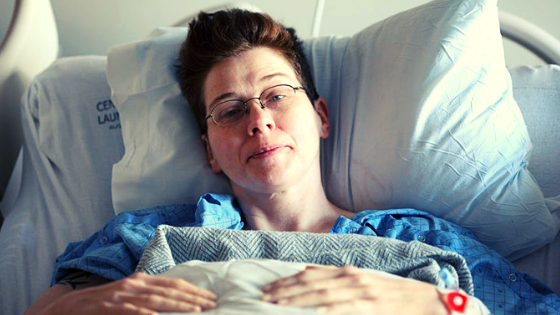How to Prep for Oral Surgery
Expert Tips from Oral Surgeon, Thomas Ocheltree
I’m nervous about going under general anaesthetic, so I opted to have my wisdom teeth taken out in the chair by my Dentist. The first extraction went fine but the second one was horrendous. I suffered what’s called a dry socket.
Ouch! It was one of the most painful things I’ve ever experienced and it put me off going to the Dentist for years.
It’s difficult to know for sure, but this may have been avoided if my Dentist had referred me to a specialist, a trained Oral Maxillofacial Surgeon.
Why go for Oral Surgery?
Here are some of the reasons you might have to go for Oral Surgery. When you need…
- to remove a painful, impacted wisdom tooth
- to insert dental implants or crowns
- corrective jaw surgery
- to treat or remove malignant or benign growths on the tongue, cheeks or gums
- to remove infected roots
 Top 5 Things to Know before Having Oral Surgery
Top 5 Things to Know before Having Oral Surgery
There are a few important things to remember when preparing for Oral Surgery.
1. Ask Questions
It’s important to understand why your Dentist, Orthodontist or Oral Surgeon recommends you have surgery and what complications might arise.
Make sure you ask every question that’s on your mind. There are no silly questions.
2. Nil by Mouth
Before going under general anaesthetic, it’s best to avoid all food and even water for 8 to 12 hours before your procedure.
If you’re having surgery in the chair and only need local anaesthetic, avoid food for at least 2 hours before-hand.
If you have to take medication before your surgery, take only a sip of water, just enough to get the tablet(s) down.
Smokers
You are not permitted to smoke 12 hours before surgery or 72 hours after. This might be the perfect opportunity to quit?
3. Dress Comfortably
Wear loose, comfy clothes.
Ladies
If you have long hair, it’s best to tie it back and don’t wear jewellery or make-up.
Contact Lens Wearers
Take your specs along as your eyes will be scratchy if you leave your contact lenses in during the op.
4. Pre-Planning for After Your Op
What you eat and drink after surgery is also important. Your teeth, gums and jaw will be sensitive so you’ll have to take extra special care.
Do’s:
Make sure you have soft foods in the house that are easy to eat such as yoghurt, oatmeal, smoothies or protein drinks.
Dont’s
Don’t eat anything until your anaesthesia wears off. If your mouth is still numbed by the anaesthetic you might bite your tongue or cheek by accident.
Don’t drink alcohol 24 hours after surgery or while taking prescription pain relievers.
Avoid foods that irritate the gums (like spicy or acidic foods).
5. Don’t Drive Yourself Home
It’s also best to get a friend or family member to take you to and from your Surgery. Even local anaesthetic can impair your judgement but if you go under general anaesthetic it’s not safe to drive for at least 24 hours after surgery.
This tip is not only for your safety but also for your comfort. Have a loved one with you before and after surgery helps calm your nerves, making you feel more positive and relaxed.
Note from the Editor:
If there is no-one close to you who can be there for you on the day, you can use calming music, meditation, prayer or Emotional Freedom Technique (EFT) to ease your nerves. Or simply bring your focus to your breath and think about relaxing every muscle in your body. I find these techniques work brilliantly for me in stressful situations.
Are you feeling prepared? Wishing you well with your oral surgery.
Thomas Ocheltree is an Oral Surgeon in Bloomington, Illinois. He attended Augustana College and the Southern Illinois University School of Dental Medicine. Tom has Surgical Training and Oral and Maxillofacial Surgery Training.
Connect with Thomas Ocheltree on:





